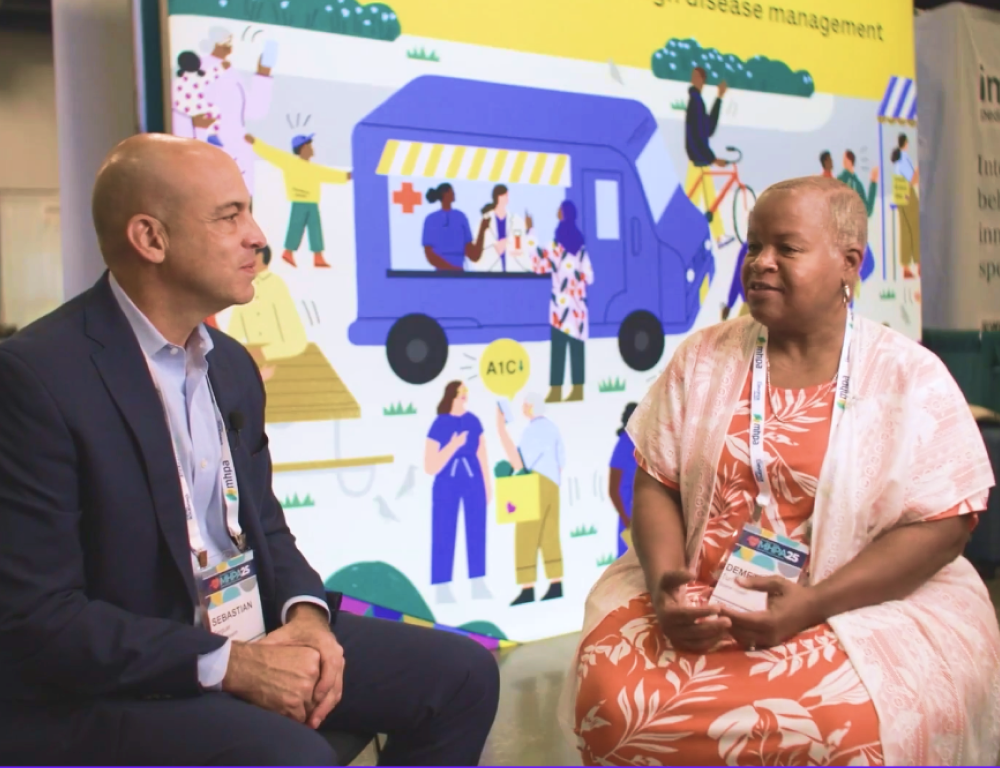Culturally Responsive Care: Honoring Juneteenth by Enhancing Patient Engagement

Juneteenth, a federal holiday memorializing the emancipation of enslaved African Americans, represents the culmination of a long-fought battle for freedom, justice, and equality. The holiday is an annual reminder that the journey toward liberation and understanding is not over. For Juneteenth's 158th anniversary, we're reflecting on the importance of cultural sensitivity in boosting medication adherence and improving healthcare delivery, as well as highlighting our care team's impact in this space.
There are glaring racial disparities when it comes to medication adherence — the extent to which patients take their medications as prescribed. Due to a multitude of factors, Black Americans are overburdened with challenges that contribute to low medication adherence, and as a result, disproportionality suffer from adverse health impacts, including mortality.
Building strong relationships with patients is crucial to positively influencing medication adherence, closing care gaps, improving outcomes, and reducing costs. By recognizing the unique needs and challenges of Black Americans and offering culturally responsive care, healthcare organizations can work to alleviate health disparities.
But this work can be challenging when caring for diverse populations with complex needs. To help, we partner with healthcare organizations like health plans, public health departments, and health systems to foster a more inclusive approach to care.
Our care team of pharmacists, nurses, and health coaches contribute to this approach in three important ways:
Building trust through daily interactions
Mistrust, distrust, and poor communication related to cultural differences pervade the healthcare system and impede efforts to provide equitable care. A legacy of unethical research and medical racism contributes to high levels of stigma and mistrust among marginalized populations. Patients raised in communities suspicious of the healthcare system are less likely to trust providers' recommendations. This contributes to medication nonadherence and fewer visits to medical professionals, even in drastic conditions.
Our motivational, supportive, energetic, and empowering care team builds patient trust through daily interactions. By continuously and consistently supporting and uplifting patients, our care team becomes like family. Patients grow to entrust our care team with details about their life that provide valuable context into their adherence issues. Entrusted with this information, our care team can expertly identify and address barriers caused by social determinants of health, like a lack of safe housing, transportation, education, and access to nutritious food. This information is also shared with the patient's health plan and provider, contributing to a better healthcare experience.
Filling gaps in communication
Communication barriers can make it significantly difficult for healthcare providers to engage with patients, hindering effective care delivery and leading to misunderstandings or errors in the diagnosis and treatment process. Distrust of the healthcare system can disincentivize patients from communicating with their doctors. Issues with language barriers and literacy present another obstacle to receiving quality care. Populations with challenges communicating with their providers often feel frustrated and experience lower engagement and satisfaction rates.
Daily interactions go a long way to improving communication with patients. Through daily engagements, our care team can cut through communication barriers with patients as they build a history and a rapport. And when a patient's needs require escalation to their provider, our care team acts as an intermediary and an advocate.
Providing culturally responsive care
All too often, African-Americans and other minorities are talked down to in medical contexts. Their concerns are not acknowledged, and there is less empathy in the treatment process. Implicit bias refers to the unconscious, often negative stereotypes someone may have about people who belong to certain social groups. Bias informs providers that Black patients are less compliant, and studies have shown this to lead to lower levels of patient-centered dialogue.
Our care team extends culturally responsive care to patients by actively listening to them, respecting their beliefs and values, and helping them advocate themselves. Our care team members lean on their backgrounds and experience to connect with patients at every level. We've seen that our relationship-based approach helps patients feel comfortable and empowered.
Moving forward: taking steps towards equity
Juneteenth serves as a reminder of the ongoing need to foster inclusivity and equity in care delivery. A healthcare environment that centers and respects diverse patients is necessitated by the systemic discrimination that continues to impact the lives of Black Americans and other communities of color. Our care team's approach to providing culturally responsive care through our comprehensive medication engagement program is crucial. Throughout the healthcare system, embracing diversity and cultural understanding is essential for honoring Juneteenth, advancing health equity, promoting adherence, and achieving better outcomes for all.




Download the Insights into Medication Challenges in Populations with Low Incomes: The Scene Medication Survey

Download the Insights into Medication Challenges in Populations with Low Incomes: The Scene Medication Survey






.png)
